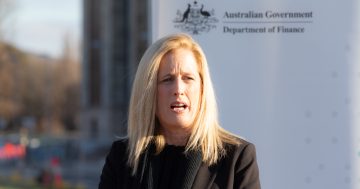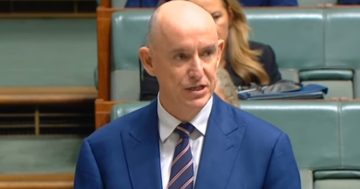
Safer Communities grants have funded security infrastructure such as CCTV. Photo: ANAO.
The administration of Commonwealth grants is again in the spotlight with a new audit report finding that the awarding of more than $180 million in funding under the Safer Communities Fund did not always follow the rules, was marked by unsupported approval decisions and ministerial interventions.
The audit also found the grants, which funded infrastructure and programs to counter crime and improve public safety, mostly favoured Coalition seats, or in some cases, targeted marginal Labor seats.
The Auditor-General also questioned the program’s impartiality and fairness.
My Public Sector
The Safer Communities Fund was established in 2016, initially under the control of the Attorney-General’s Department, but this was transferred to Home Affairs in 2017. It was expanded in 2019 after the Christchurch terror attack at the Al Noor Mosque and is currently in its sixth round.
In the wake of the sports and car park rorts affairs, the findings will only add to perceptions that the grants system is used as an election slush fund.
The audit described an increasingly opaque process and found problems with how applications were assessed, how merit scores were applied and a lack of information about why an application was approved.
“Grant applications received across the eight selection processes were not assessed fully in accordance with the relevant grant opportunity guidelines,” the audit said.
The audit found approvals made against the recommendation of the department after Ministers visited applicants were not supported by any new information.
“The records of decisions did not set out how information collected during Ministerial visits to certain applicants and representations from Parliamentarians was being relied upon to inform an assessment against the grant opportunity guidelines,” the audit report said.
In Round 3, the Home Affairs Minister Peter Dutton approved a total of $199,570 in funding for two applications the department had not recommended on the basis of the assessment against the published merit criteria.
Mr Dutton had visited the two applicants in the context of an earlier by-election in the electorate and publicly announced the grants.
In Round 4, after visits, Assistant Minister Jason Wood awarded a total of $1.3 million to five applicants the department had advised were unsuitable and when applications had already closed.
He approved three further applications deemed unsuitable and worth $1.5 million after lobbying from a Senator and two MPs.
In Round 5, Mr Wood approved a total of $2.9 million to seven applications on the basis of visiting the applicant. Only one had achieved a ‘suitable’ score but not high enough to either be recommended for funding or included on the list of candidates for the reserve list.
Five other applications were categorised as ‘unsuitable’ due to their scores against the merit criteria, and one application had been assessed as ineligible.
The grant guidelines do not explicitly rule out ministers interacting with applicants, but the Auditor-General noted that in the interests of fairness, this should be on the table, comparing the situation to a tender process.
While the department clearly identified applications it recommended for funding, its decisions “were not appropriately informed by departmental briefings” and in most cases the basis for the decisions was not clearly recorded.
Except for one of the eight selection processes, the department did not provide adequate information on the results of the assessment of each eligible application against the published merit criteria. For six selection processes, it put forward lists of candidate applications for inclusion on ‘reserve’ lists without any recommendation as to which of those should be selected or why.
“For 54 per cent of approved applications involving 60 per cent of approved funding, the basis for the funding decision was either not clearly recorded or did not address the eligibility requirements and merit criteria published in the grant opportunity guidelines,” the audit found.
The audit also found five applications worth $1.12 million in grants were assessed as ineligible but still approved.
The assessment criteria weighting changed over time and later applications were not assessed in the same way as earlier ones.
Over time it became less clear that it was Home Affairs making the funding recommendations and even which Minister would be making the grant funding decisions.
For three selection processes, the Minister identified in the guidelines as the decision-maker did not do so.
The audit also noted that most of the applications came from Jewish or Christian community organisations, with few from Muslim, Buddhist, Hindu or Sikh groups, and recommended that Home Affairs ensure that all groups are aware that funding is available and there are no perceived or actual barriers to entry.
The Auditor-General made five recommendations, including clarifying the decision-maker and eligibility and providing more information to Ministers on the particular merits of applications.
Home Affairs agreed to all recommendations in the report.




















